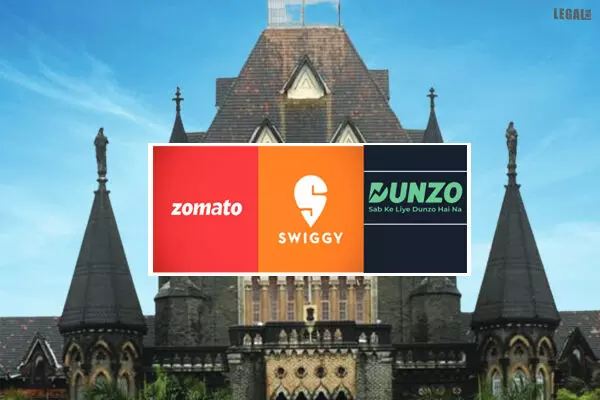- Home
- News
- Articles+
- Aerospace
- Artificial Intelligence
- Agriculture
- Alternate Dispute Resolution
- Arbitration & Mediation
- Banking and Finance
- Bankruptcy
- Book Review
- Bribery & Corruption
- Commercial Litigation
- Competition Law
- Conference Reports
- Consumer Products
- Contract
- Corporate Governance
- Corporate Law
- Covid-19
- Cryptocurrency
- Cybersecurity
- Data Protection
- Defence
- Digital Economy
- E-commerce
- Employment Law
- Energy and Natural Resources
- Entertainment and Sports Law
- Environmental Law
- Environmental, Social, and Governance
- Foreign Direct Investment
- Food and Beverage
- Gaming
- Health Care
- IBC Diaries
- In Focus
- Inclusion & Diversity
- Insurance Law
- Intellectual Property
- International Law
- IP & Tech Era
- Know the Law
- Labour Laws
- Law & Policy and Regulation
- Litigation
- Litigation Funding
- Manufacturing
- Mergers & Acquisitions
- NFTs
- Privacy
- Private Equity
- Project Finance
- Real Estate
- Risk and Compliance
- Student Corner
- Take On Board
- Tax
- Technology Media and Telecom
- Tributes
- Viewpoint
- Zoom In
- Law Firms
- In-House
- Rankings
- E-Magazine
- Legal Era TV
- Events
- Middle East
- Africa
- News
- Articles
- Aerospace
- Artificial Intelligence
- Agriculture
- Alternate Dispute Resolution
- Arbitration & Mediation
- Banking and Finance
- Bankruptcy
- Book Review
- Bribery & Corruption
- Commercial Litigation
- Competition Law
- Conference Reports
- Consumer Products
- Contract
- Corporate Governance
- Corporate Law
- Covid-19
- Cryptocurrency
- Cybersecurity
- Data Protection
- Defence
- Digital Economy
- E-commerce
- Employment Law
- Energy and Natural Resources
- Entertainment and Sports Law
- Environmental Law
- Environmental, Social, and Governance
- Foreign Direct Investment
- Food and Beverage
- Gaming
- Health Care
- IBC Diaries
- In Focus
- Inclusion & Diversity
- Insurance Law
- Intellectual Property
- International Law
- IP & Tech Era
- Know the Law
- Labour Laws
- Law & Policy and Regulation
- Litigation
- Litigation Funding
- Manufacturing
- Mergers & Acquisitions
- NFTs
- Privacy
- Private Equity
- Project Finance
- Real Estate
- Risk and Compliance
- Student Corner
- Take On Board
- Tax
- Technology Media and Telecom
- Tributes
- Viewpoint
- Zoom In
- Law Firms
- In-House
- Rankings
- E-Magazine
- Legal Era TV
- Events
- Middle East
- Africa
Plea before Bombay High Court against illegal eateries

Plea before Bombay High Court against illegal eateries
The appeal specified that several food outlets that came up during the Covid-19 pandemic had hit their business
The Indian Hotel and Restaurant Association (IHRA) has approached the Bombay High Court claiming that food delivery apps Swiggy, Zomato and Dunzo were delivering food from illegal and unauthorized outlets.
The bench of Justice AA Sayed and Justice Abhay Ahuja will hear the plea.
The petition stated that during the pandemic when restaurants were shut for the public, delivery of food was permitted only through the distribution companies. At that time, a substantial number of illegal food outlets had sprung up on food delivery apps.
The plea filed through advocate Aditya Chitale stated that the members of the petitioner/association had invested large funds for running their restaurants. They had obtained all mandatory licenses and complied with the changing statutory rules and regulations. But the new illegal eateries had expanded their wings with their menus uploaded on the websites and mobile applications of the delivery companies.
IHRA maintained that it had earlier complained to the Executive Health Officer about such openings. Thereafter, the officer had issued notices to the delivery companies to stop the pick-up and delivery of food from such centres.
The copies of the notices were sent to the senior inspectors at Khar, Bandra and Santacruz police stations to initiate appropriate action under the law.
The petitioner's grievances included that a majority of the vendors did not have appropriate licenses; they operated from bare minimum spaces in the most unhygienic conditions; the civic authorities had not taken any action; and, while the vehicles being utilized for food delivery were registered with the regional transport authorities for personal use, they were being utilized for commercial purposes.
IHRA had sought directions to take appropriate action against the illegally operating eating-houses for their failure to comply with the provisions of the Mumbai Municipal Corporation Act; action against the food delivery companies for offering services to the outlets; registering criminal proceedings against officials of the food delivery companies; prohibiting illegal vendors from operating and encroaching the roadside areas; prohibiting the supply of LPG cylinders to the vendors; and, action against using non-commercial vehicles for commercial use by the officials of the delivery companies.



